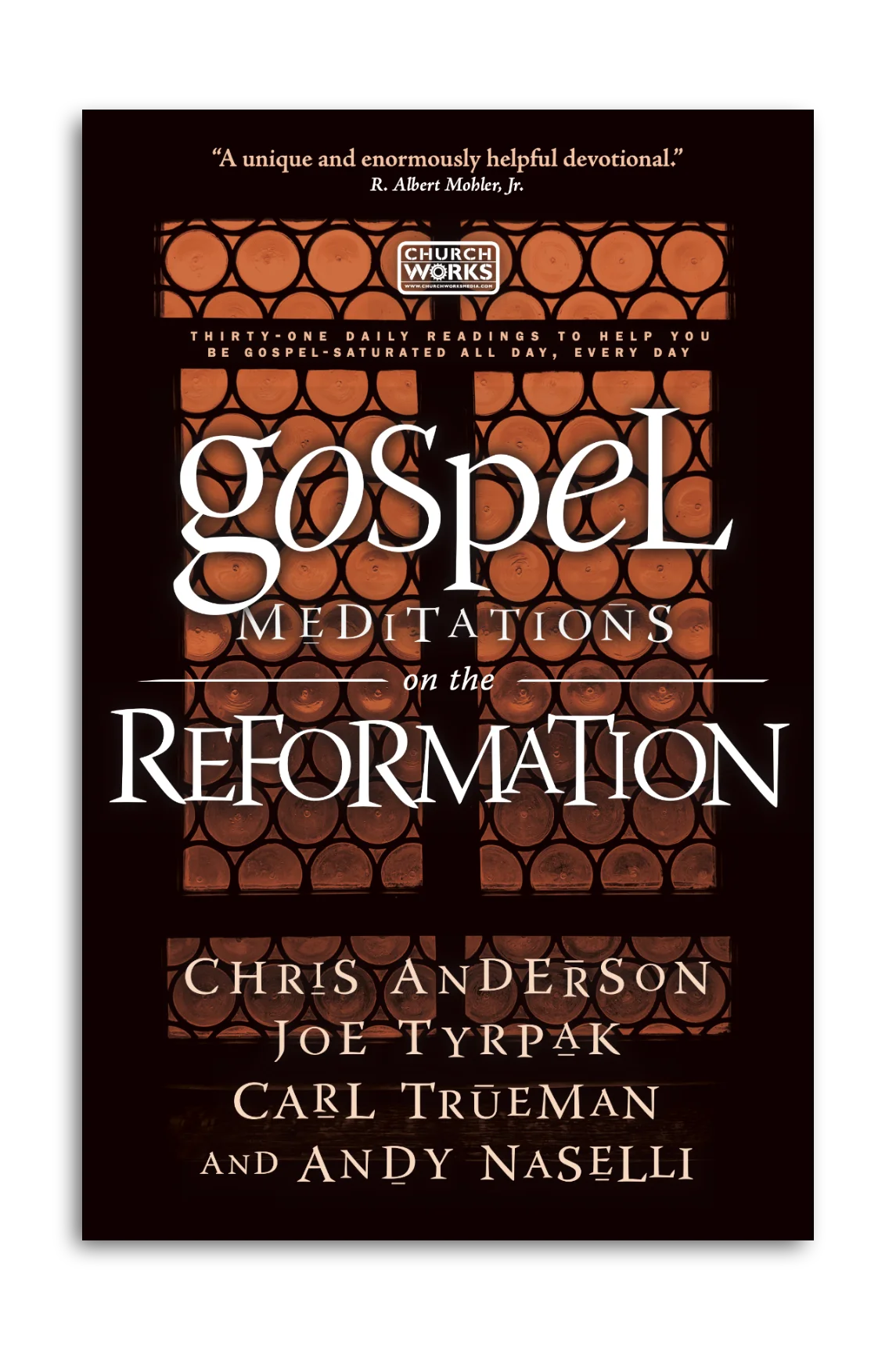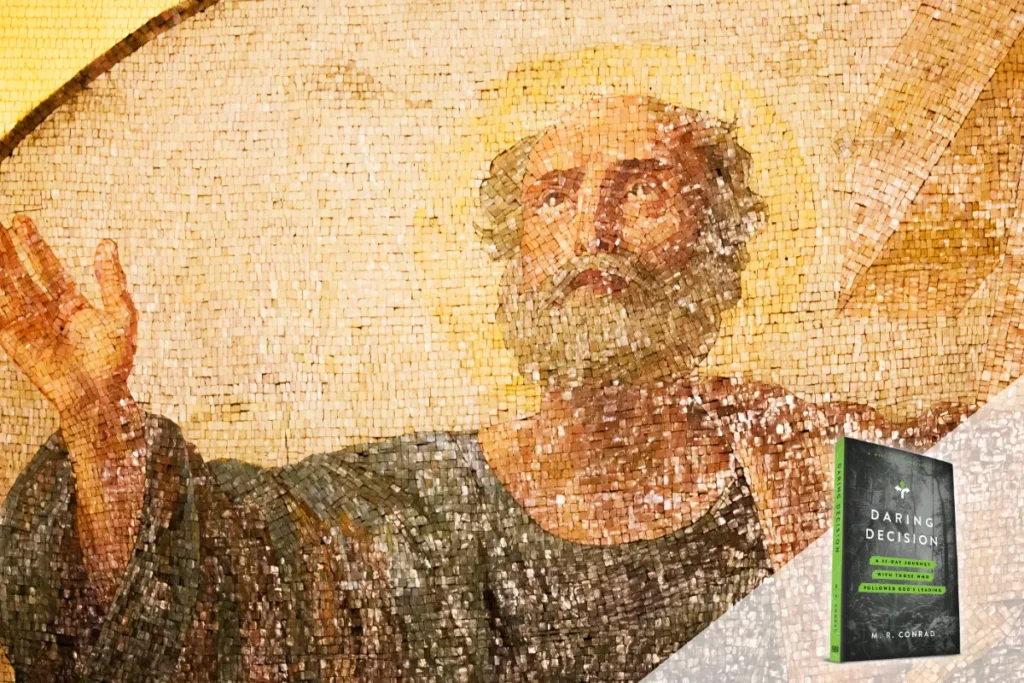
Blog
Soli Deo Gloria: To God Be the Glory

This excerpt by Andy Naselli comes from Gospel Meditations on the Reformation (Day 11: “Soli Deo Gloria”).
“To [God] be glory forever. Amen.” (Romans 11:36)
Romans 11:36 is my favorite portion of Scripture. That is why I asked my good friend Joe Tyrpak to help design two large canvases that artfully display that passage—one to hang above our home’s fireplace and the other above my desk in my office at Bethlehem College & Seminary.
Romans 11:33–36 responds to three chapters of deep theology (Romans 9:1–11:32). Paul begins with three exclamations about God’s unfathomable ways (Romans 11:33): God’s riches, wisdom, and knowledge are deep! God’s judgments are unsearchable! God’s ways are inscrutable!
Our Unfathomable God
No one can fully understand God. For you to think that you fully understand God’s ways would be as foolish as the Vikings discovering a slice of the shoreline of what is now America and therefore concluding that they fully understand North America. We know “but the outskirts [the outer fringe, NIV] of his ways” (Job 26:14).
Romans 11:34 begins with “For” because verses 34–35 support verse 33 by exulting in three specific reasons that God’s riches, wisdom, and knowledge are deep:
1. “Who has known the mind of the Lord?” (Verse 34a quotes Isaiah 40:13a)
God is incomprehensible. His knowledge is deep. That implies that you can’t understand everything, that God is not obligated to explain anything to you, that you should humbly believe and cherish what God has revealed, and that you should praise God for what He does and does not explain.
2. “Who has been his counselor?” (Verse 34b quotes Isaiah 40:13b)
God does not have any counselors. His wisdom is deep. That implies that you shouldn’t try to give God advice and that you should praise God for not needing advice.
3. “Who has given a gift to him that he might be repaid?” (Verse 35 quotes Isaiah 41:11a)
God does not have any creditors. His riches are deep. That implies that you shouldn’t try to place God in your debt and that you should praise God for not owing anything to anyone.
The God-Centeredness of All Things
Romans 11:36 begins with “For” because Paul gives reasons that support verses 34–35. Paul summarizes the God-centeredness of the universe with three prepositional phrases that lead into the climactic doxology:
“From Him”—God the Father is the Source of all things!
“Through Him”—God the Father is the Means of all things!
“To Him”—God the Father is the Goal of all things!
God encompasses the beginning, middle, and end.
So when you meditate on Romans 11:33–36, you should be thinking, “Wow! God’s attributes are humbling, and God is gloriously praiseworthy!” That ties perfectly into the final climactic line (v. 36b). God’s characteristics (vv. 34–35) are rooted in His sovereignty (v. 36a) and culminate in doxology: “To him be glory forever. Amen” (v. 36b). By ascribing “glory” to God, Paul praises God for His unique excellence and infinite worth. The ringing message is that God alone is supreme.
That’s what the phrase soli Deo gloria (“Glory to God alone”) is all about. It is one of “the five solas” of the Protestant Reformation. “God’s glory alone, and that of no creature, is the supreme end of all things” (David VanDrunen, God’s Glory Alone, p. 14).
God alone is supreme.
“Not to us, O Lord, not to us, but to your name give glory, for the sake of your steadfast love and your faithfulness!” (Psalm 115:1).
Let the gospel move you to give glory to God alone.
Explore the whole book!
October 31, 2017, marked the 500th anniversary of Martin Luther’s posting of his Ninety-Five Theses and the beginning of the Protestant Reformation. In honor of this occasion, Church Works Media teamed with noted church historian Carl Trueman and theologian Andy Naselli to write 31 daily devotionals, taken from Scripture and illustrated with scenes from Reformation history. These meditations will feed your mind, warm your heart, and point your thoughts to Christ! Soli Deo Gloria!













